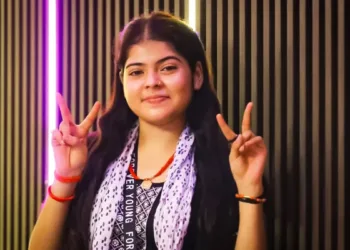The Premier League is reportedly planning to make a significant payment to the police, amounting to approximately £7 million. This move is seen by some as a strategic gesture to facilitate its clubs in hosting high-risk matches during the lucrative late television slots.

Back in October, reports surfaced indicating that the league was contemplating a one-off payment. This consideration arose in response to a growing reluctance from local law enforcement agencies to oversee games between rival teams, particularly those scheduled for later in the day, which are perceived to carry a higher risk of disturbances.
Despite recent instances of disorder surrounding football matches, the Premier League is proceeding with its intention to provide what is referred to as a ‘gift’ to the police. The amount, estimated at £7 million, has sparked discussions and controversy, given the context of the prevailing challenges in managing security and safety during football events.
Read More: Manchester United, Arsenal and Liverpool To Face Each Other in US for Pre-season 2024
Premier League’s Financial Gesture: Funds Allocated to Police Amid Rising Crowd Trouble
The allocated sum is set to be divided among police forces nationwide that oversee areas hosting one or more top-flight football clubs. This decision comes in the wake of a surge in crowd trouble, highlighted by recent incidents such as a League One referee being chased off the pitch and a 30-minute halt to an FA Cup tie due to disturbing scenes over the weekend. Anticipating potential criticism, the Premier League’s payment, while possibly raising ethical questions, is unlikely to face government opposition, considering the financial strains on police forces.

The Premier League has refrained from providing an official comment on the matter. It is speculated that the payment will be structured as an unconditional gift in accordance with Section 93 of the 1986 Police Act. The league aims to express gratitude to the police forces for their efforts in ensuring the safety of both fans and players. Importantly, forces will have the autonomy to utilize the funds as they deem fit, and the payment is set to be unconditional.
Despite these intentions, some perceive this payment as a ‘sweetener.’ One source suggests that it may be an effort by the Premier League to ensure that high-profile matches are scheduled in late time slots, catering to audiences both domestically and internationally, especially in the United States. The motive is viewed by this source as a strategic move to navigate potential issues and appease television companies.
Notably, in the previous season, safety authorities allowed Chelsea to play Manchester United in the prime-time late Saturday slot, but with the condition that United’s allocation was reduced from 3,000 to 1,500.
Kickoff Time Dilemma: Balancing Crowd Behavior and Global Viewership for Premier League Matches
Earlier in the season, it was reported that the highly anticipated Manchester City versus Liverpool fixture scheduled for November 25 had to be rescheduled from Sky’s preferred 5.30 pm slot on Saturday to 12.30 pm due to concerns raised by the police regarding potential crowd behavior issues.

The traditional stance held by both the police and local authorities is that later kick-off times provide fans with more time in pubs, increasing the perceived risk of disorder. Recent incidents, such as a fan confronting a referee at the Port Vale versus Portsmouth League One clash, resulting in an arrest, and disruptions during the West Brom versus Wolves Black Country derby in the FA Cup with six arrests, highlight ongoing concerns about crowd behavior.
Scheduling high-profile matches at 12 pm not only addresses these concerns but also has significant implications for audiences in the United States, especially on the West Coast, which is home to major markets such as Los Angeles and San Francisco. The impact on the American audience was evident in December’s Liverpool versus Arsenal clash, which garnered a record 1.96 million viewers in the U.S., surpassing the average audience in the UK.








